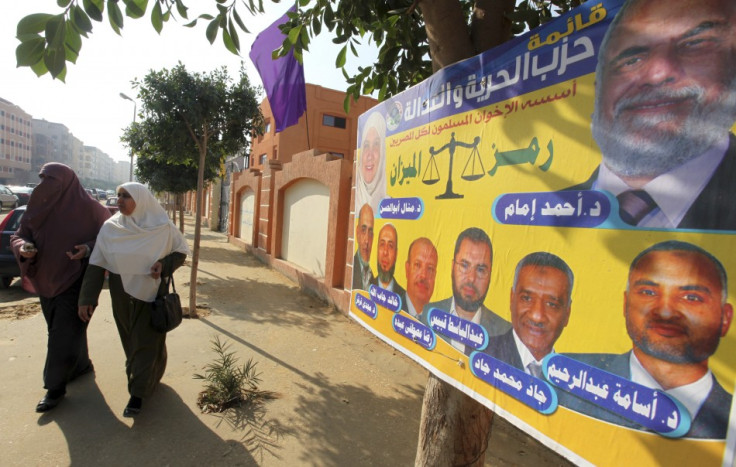Will the Muslim Brotherhood Win Egypt's Elections?

Ten days ago, the likelihood of the next Egyptian government being dominated by a reformist Islamist bloc headed by the Muslim Brotherhood seemed very high. But events over the past week have stirred tensions in the political arena as well as in the street, and have exposed some of the fault lines within the Brotherhood itself.
Since its founding by Hasan al-Banna in 1928, the Brotherhood has proved itself to be chameleon-like in its strategy and motivations. Faced by persecution during the reign of President Nasser, the movement was forced to go underground and avoid any direct involvement in the political arena. But its relative obscurity on the political stage did not affect its power and influence in Egyptian society as a whole, and it proved itself a popular rallying force for those Egyptians who felt forsaken by the government and the state.
The Lesson of History
It wasn't until 1984 that the Brotherhood was finally able to run candidates in elections. This history of persecution and marginalisation has arguably left a significant psychological shadow on the older leaders in the movement. They will remember how in 1954 Nasser manipulated street protests and riots in his favour, using the resulting social instability as justification for his military rule. A tactic that resulted in a 60-year military dictatorship.
While this sense of history has made the Brotherhood's elders reluctant to take part in the recent protests that have swept through Tahrir square and left at least 41 dead, younger members of the group have expressed disdain at what they see is the older generation's way of ensuring the Brotherhood's rise to power, at any cost.
For those Brothers who stood shoulder to shoulder with protesters calling for the resignation of Hosni Mubarak back in February, the movement's lack of solidarity with this new wave of demonstrations is disheartening and potentially political suicide for their Freedom and Justice Party.
"I am an Egyptian, I am a Muslim, and I want to vote for Freedom and Justice," said a young man in Tahrir Square this week, "but my heart is with these people here and I am against the military rulers. I cannot support the Ikhwan [the Muslim Brotherhood] any longer."
Younger members of the Brotherhood expressly flouted the wishes of their leaders and joined in with the protests on Tuesday and Wednesday last week. They have also been highly critical of the Brotherhood's willingness to negotiate with the ruling Supreme Council of the Armed Forces (SCAF) in order to guarantee that Monday's elections will go ahead.
The spilt between the older and younger factions of the Brotherhood has been further compounded by the conflicting interests of the Freedom and Justice Party. The party knows that its lack of visibility in Tahrir square has been damaging to its political legitimacy, and has taken issue with the Brotherhood's leadership for this very reason.
"The killing didn't stop," Mohamed Beltagy, general secretary of the Freedom and Justice Party, said in a statement on the group's Web site. "Will our slogan be, 'No negotiation until after a cease-fire'?"
Split From Within
The three-way tug-of-war within the Muslim Brotherhood has significantly weakened the group's influence, and the waning of its Freedom and Justice Party may well open up Egypt's political arena to independents and other opposition parties.
But as Egyptians go to the polls, the Brotherhood still looks set to win a significant representation in Egypt's new parliament - even if it falls slightly shy of its original goal of monopolising half of the seats. There have been reports of Brotherhood supporters illegally camping outside polling stations, and the group has allegedly canvassed large numbers of followers to help try to manipulate the outcome of the vote.
The Future of Egyptian Politics?
There is no doubt that the recent turmoil in Tahrir square and elsewhere has significantly undermined the group's credibility, particularly among its younger supporters. However, the question remains as to which parties may be likely to take the votes that would have otherwise gone to the Brotherhood.
Many western commentators have expressed concerns over the possibility of an Islamist government in Egypt, headed by the Muslim Brotherhood, but few have speculated as to the possible alternatives. The Brotherhood has a long history of evolution and political compromise as a movement - something that cannot be said of the Salafist al-Nour party, for example.
Whatever the outcome of Monday's election, the Muslim Brotherhood - in one way or another - are certainly well placed to have a significant impact on the future of Egyptian politics.
© Copyright IBTimes 2025. All rights reserved.




















